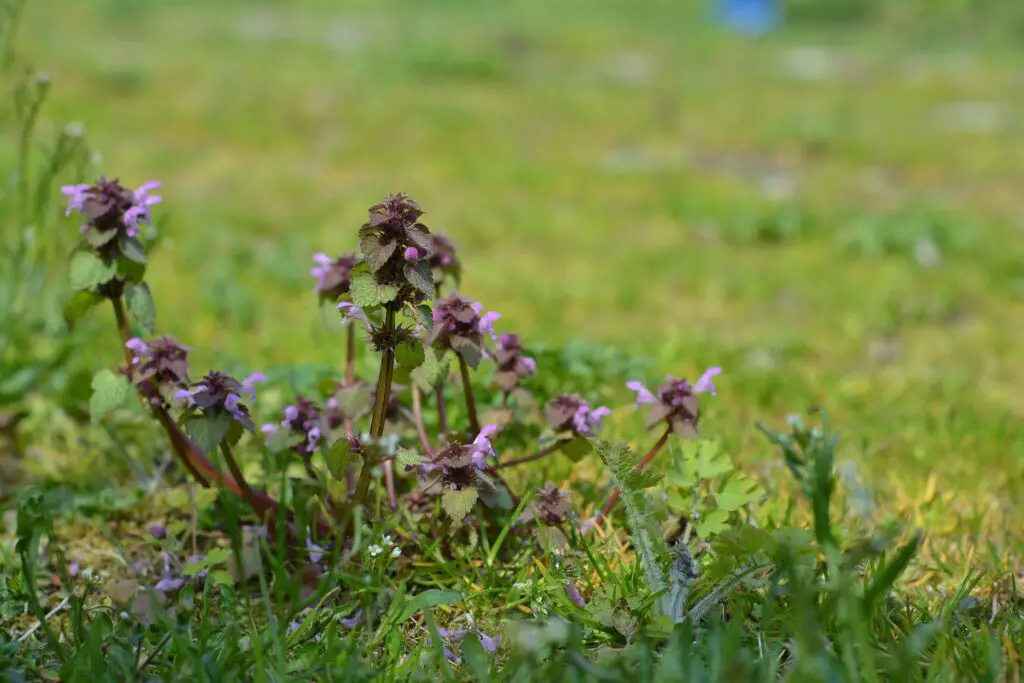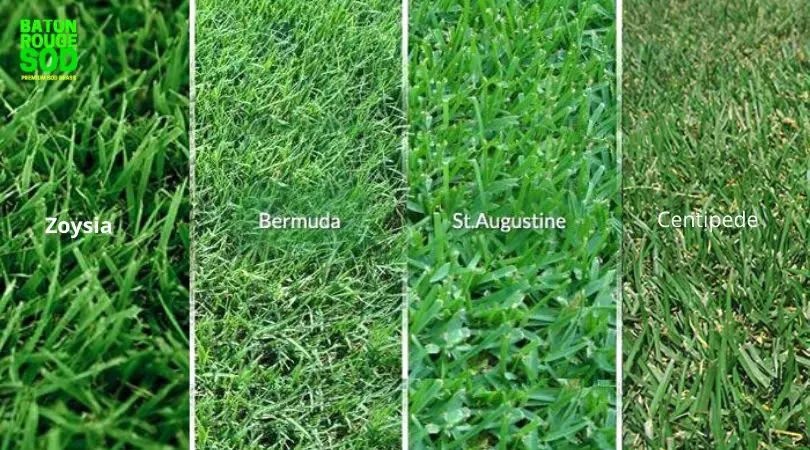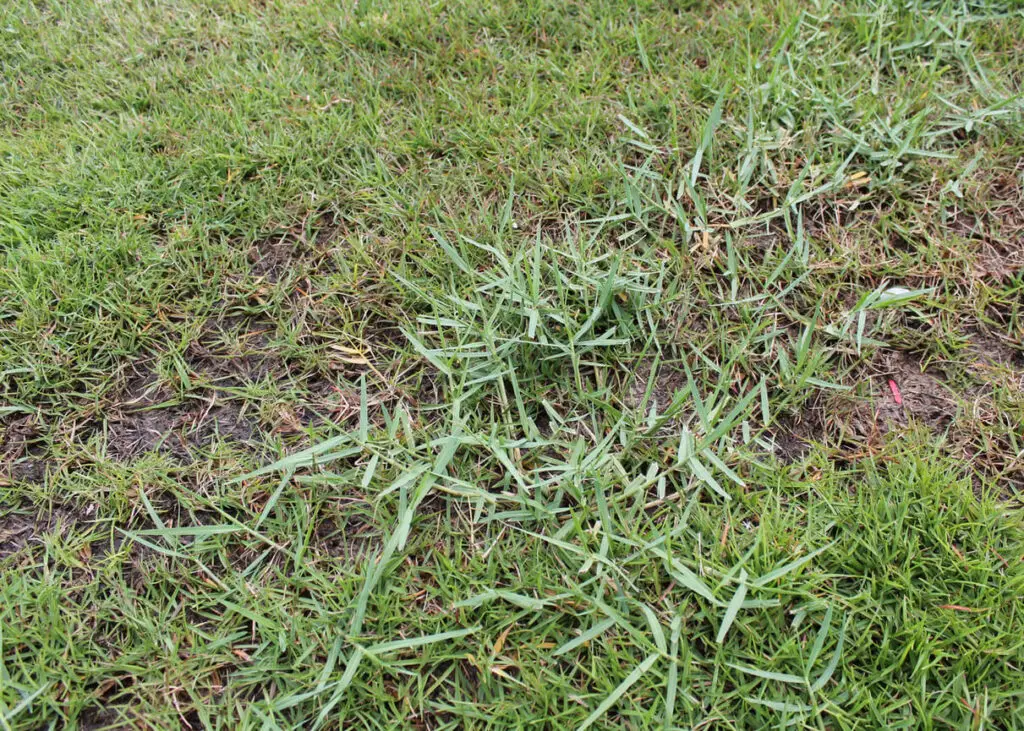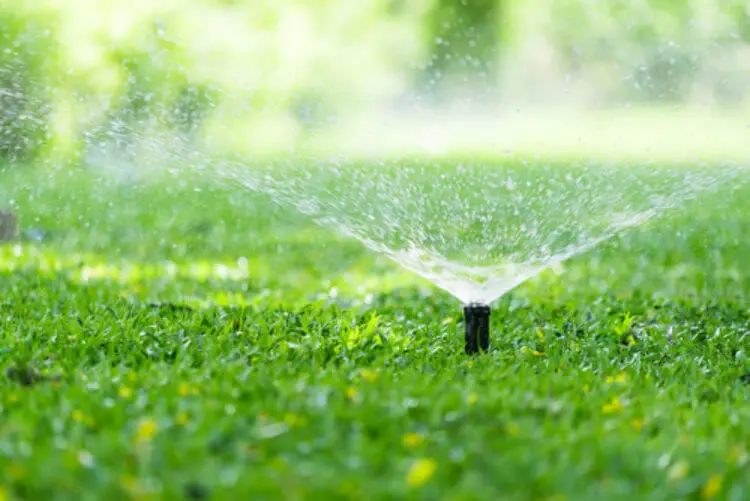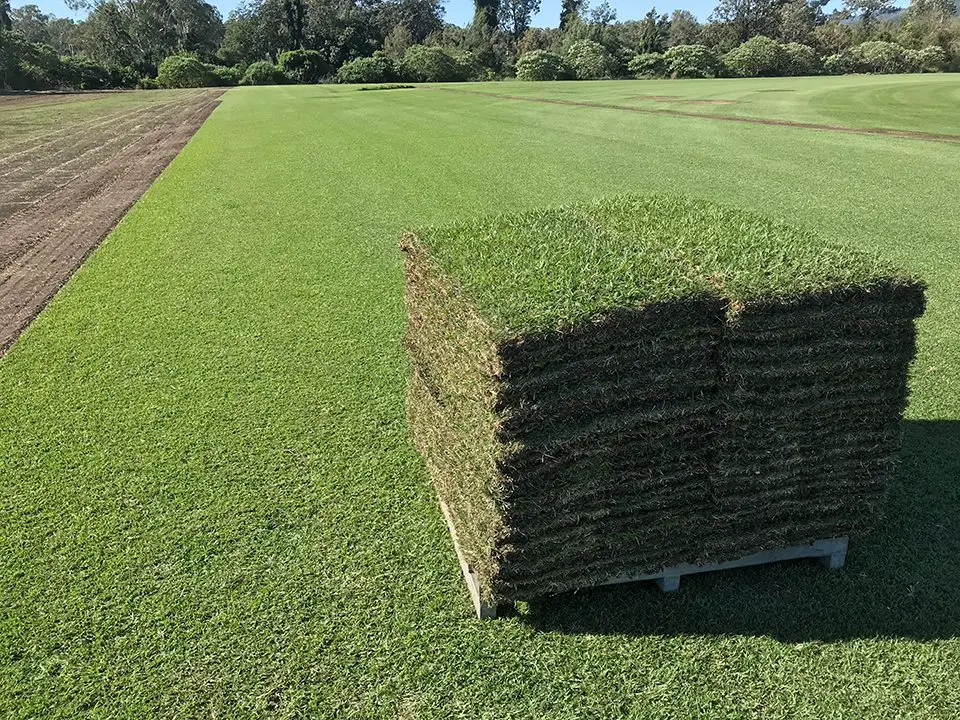Outdoor areas can be a beautiful addition to any home, but they can also be a thorn in the side of homeowners if they’re not properly maintained.
Lawns are one of the most important parts of a home’s exterior.
For some, they are a focal point. And an accent piece for others.
Not only do they provide a beautiful backdrop, they’re also multi-functional; and can also be used for activities.
Using a good lawn weed killer is one of the most important tools to keep your yard looking its best.
It is important to choose the right lawn weed killer for your specific needs, in order to achieve the best results.
There are many different types of herbicides on the market, and each one has its own advantages and disadvantages.
With so many choices, it can be difficult to decide which one is best for your specific needs.
What Is The Best weed killer for lawns?
Most lawn herbicides that are reliably effective in controlling broad leaf weeds are also usually safe to use on most warm-season turf grasses.
The best lawn weed killer is a good selective herbicide designed specifically for lawns.
And the best of the best is a lawn herbicide specifically designed for the type of grass you have in at your property.
Most will have Dicamba and or 2,4-D in the ingredients.
Triclopyr and Mecoprop are also widely used to treat and eliminate broad leaf weeds.
The benefit is they reduce the weeds without harming your lawn grass.
You can get lawn herbicides at your local garden center or home supply.
They are labeled “Safe for lawns” or “For Lawns”.
Determine the type of grass you have and find one that’s designed for that.
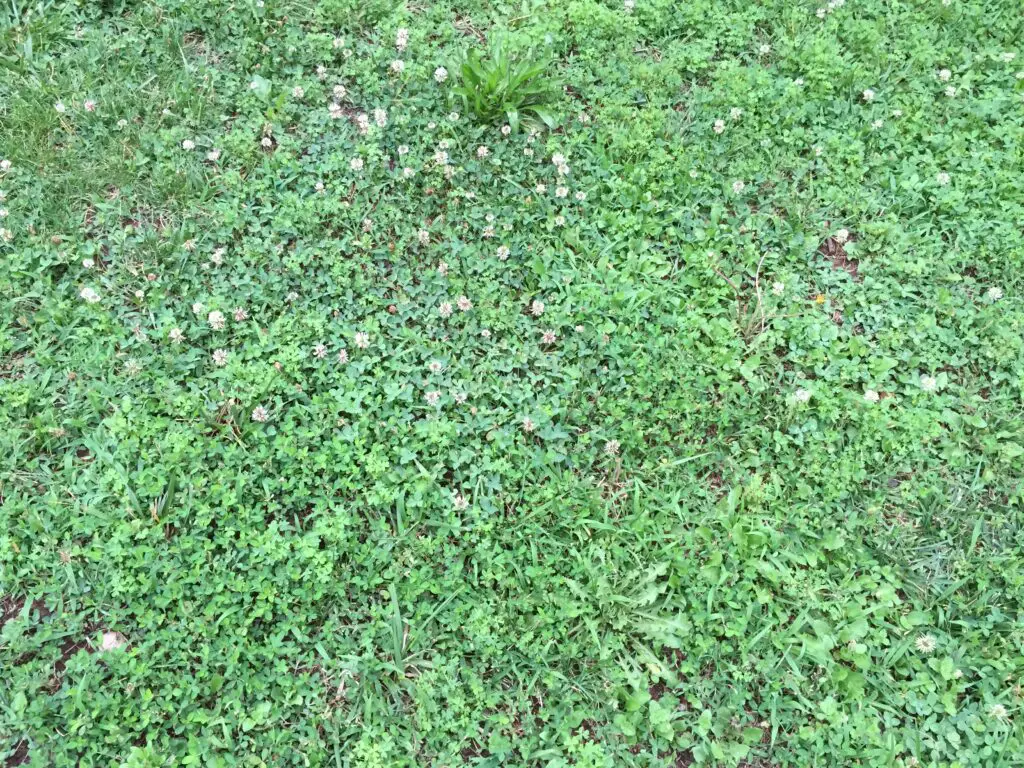
Here are some of the best lawn weed killers available over the counter for homeowners and lawn enthusiasts.
Spectracide for Lawns
Image
Ortho
BioAdvance
Weed and Feed
selective herbicide, treats broad leaf weeds, does not affect grasses,
How To Choose The Best Lawn Weed Killer
A good lawn herbicide can be one of the most important tools in a turf specialists and homeowner’s arsenal.
There are several types available, each with its own advantages and disadvantages.
It’s important to analyze your issues and select the right type for your specific needs.
With so many weed killers on the market, but how do you know which one is the best for your lawn?
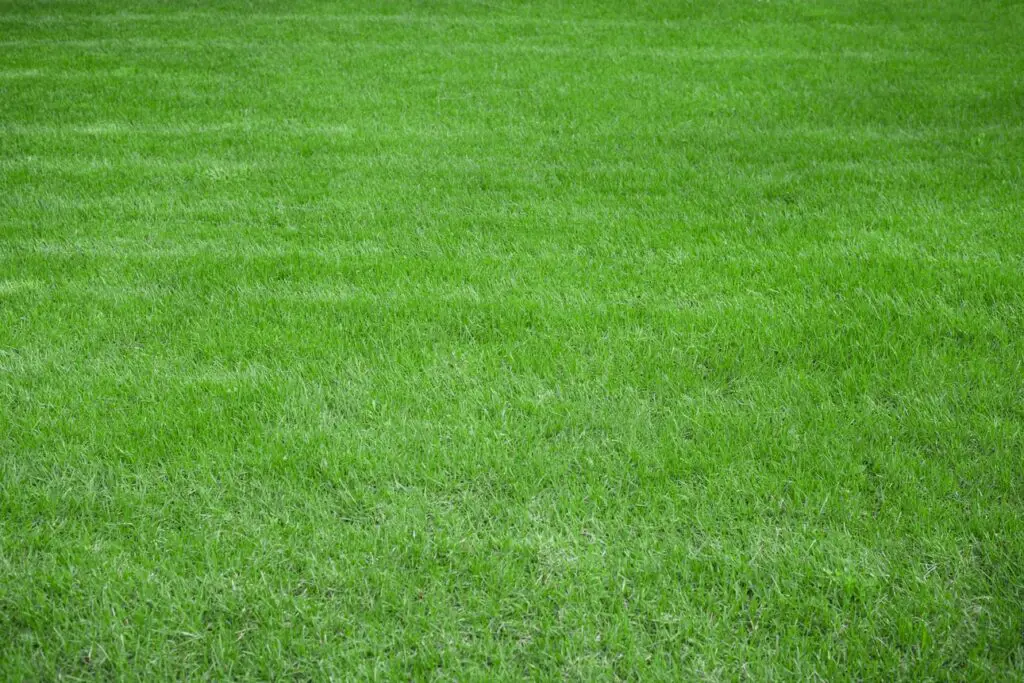
Criteria for selecting a lawn weed killer
There are multiple angles to use to treat and get rid of lawn weeds.
Do you need a weed killer or weed preventer, method of application liquid, granular, powder.
Type of weeds growing:
Each weed killer is effective at targeting and controlling specific types of weeds.
Knowing which weeds you need to control will help narrow down your choices considerably.
Generally, you’ll choose based on the types of weeds you have.
The two main categories of weeds are broadleaf or grassy.
Be sure to choose a product that is specifically formulated to target the types of weeds present.
They type of grass you have in your lawn:
Before picking an OTC lawn weed killer, determine which type of grass you have.
Each species of grass has varying levels of tolerance to specific herbicides
Certain herbicides can be significantly more hazardous to unintended varieties of grass, therefore applying the wrong product on your turf may cause damage or death.
By identifying the type of grass in your lawn, you greatly increase your chances of success.
Application Method:
Consider the ease of application when selecting a weed killer.
Liquid vs granular
Some products are available to apply as a spray, while others are applied as granules.
Use sprayer, hose end sprayer for liquid herbicides or a broadcast spreader for granules.
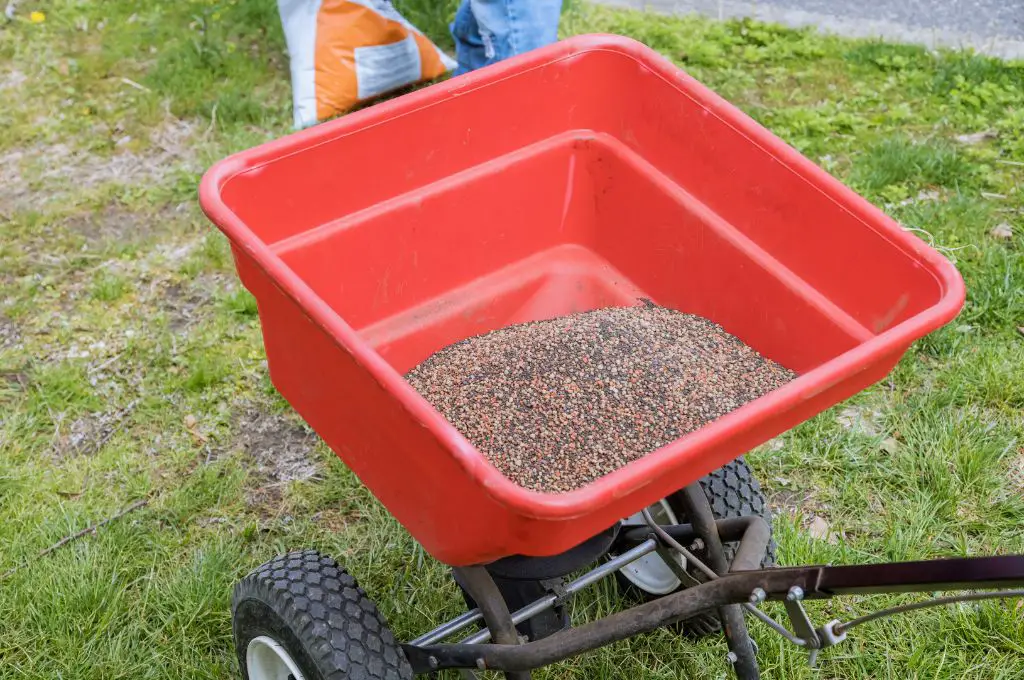
Effectiveness of the Treatment:
Look for a product that’s proven to be effective with a good track record of systematically controlling weeds.
Professional strength products are usually more effective but have a smaller margin for error.
They must be applied to manufacturer’s instructions.
The products found at the home and garden stores like Lowe’s and Home Depot, often have similar ingredients as the professional options, just slightly diluted.
Cost and Availability:
You’ve done the research, and found a product; but can you find it in your area?
Often times, the products you want are not readily available.
Many manufacturers and retailers limit supplies based on regional distribution.
When you cannot locate lawn care locally, look online where you can order and get it delivered to your property location.

Pre-emergent vs. Post-emergent
Once you narrow down your choices, it’s time to decide if you want to simply kill existing weeds, or eliminate and prevent future weeds.
Lawn herbicides can be divided into two main categories: pre-emergent and post-emergent.
Pre-emergent
Pre-emergent weed killers stop weeds from growing by preventing them from germinating or killing them after they germinate.
They are most effective when applied before weeds start to grow.
Post-emergent
Post-emergent weed killers kill existing weeds.
You can apply post emergents to get rid of the weeds that are already growing in your lawn.
Some common ingredients in weed killers include glyphosate, dicamba, and 2,4-D.
Dicamba is a selective herbicide that kills only broadleaf plants.
2,4-D is an herbicide that is effective at killing a wide variety of plants, making it a popular choice for lawn enthusiasts.
When using an herbicide that contains 2,4-D, be sure to read the instructions carefully and follow them closely, as it’s easy to apply incorrectly.
Avoid products with glyphosate. Glyphosate is a nonselective herbicide that kills both weeds and grass.
It is effective against a wide variety of plants, but it can also damage nearby plants if it is not used properly.
best lawn weed control, best weed control for lawn
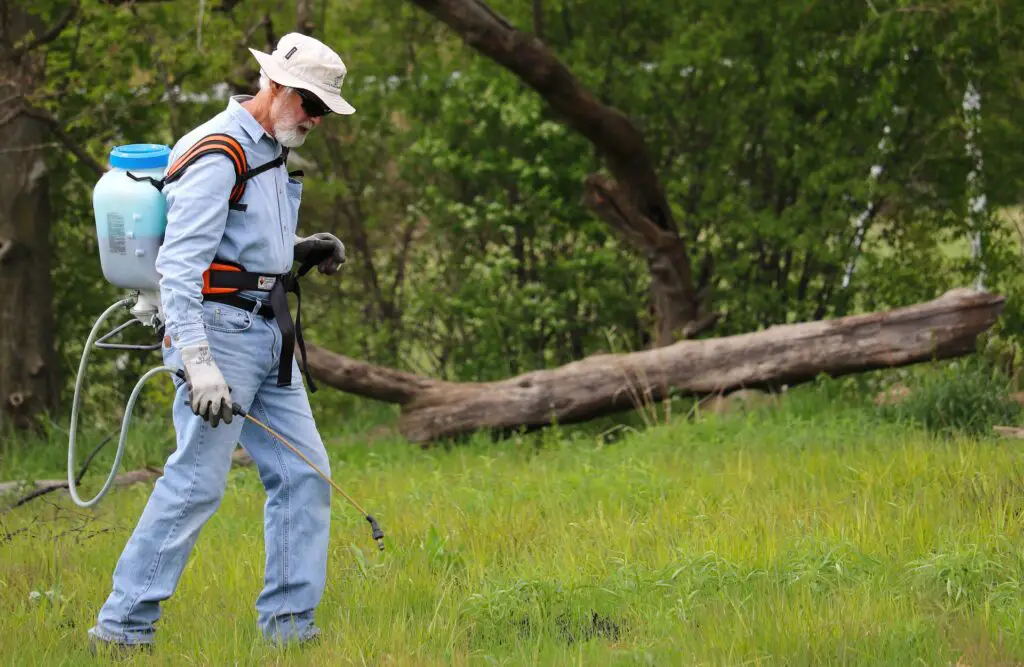
How To Apply Lawn Weed Killer
Weed killers are available as liquids, granules, or powders that each have specific steps for application.
There are four methods commonly used to apply lawn treatments.
These are hose end sprayer, backpack sprayer, mechanical pump sprayer, and broadcast spreader.
Hose end sprayers and broadcast spreaders are probably the most commonly used treatment option for homeowners.
Many professional service providers often use backpack sprayers and mechanical pump sprayers.
Liquid or granular?
How To Apply Liquid
The first part is meticulously mixing the ingredients.
Make sure you measure properly.
Use the provided measuring devices, or buy your own measuring cups.
Proper mixing and calibration of the application equipment is vital.
It is important to apply the right amount of chemicals to your lawn grass.
You can cause serious problems if you put too much on your grass.
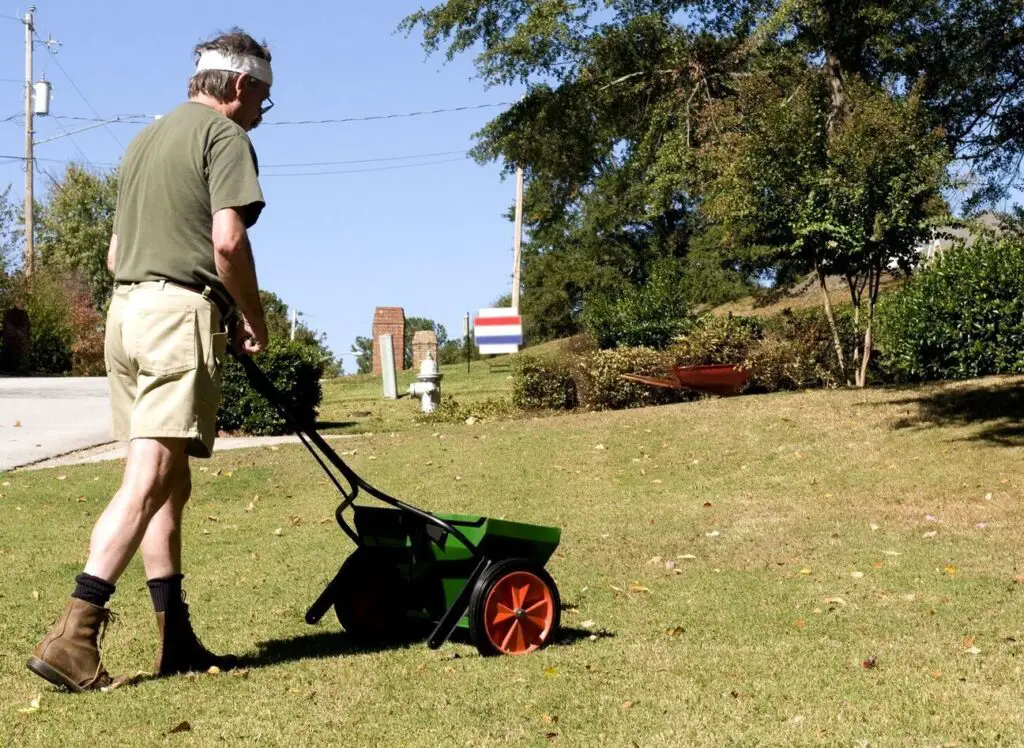
How To Apply Granules
Granules have to be applied with a broadcast spreader.
You’ll need a good broadcast spreader like the Scotts Spreader or Lesco Spreader.
Measure your yard to get the square footage, then apply based on the measurements.
Organic weed killer for lawns
Some herbicides use chemicals that can harm your plants and pets, so be sure to read the label before using.
There are many types of organic lawn weed killers on the market that are free from harmful chemicals, but which one is the best?
You can choose an all-natural product for your grass.
Organic weed killers work by breaking down the weeds’ cell walls, while others work by depriving the weeds of water.
Overall, the best lawn weed killer will depend on the type of plants you are fighting and your specific gardening or landscaping needs.
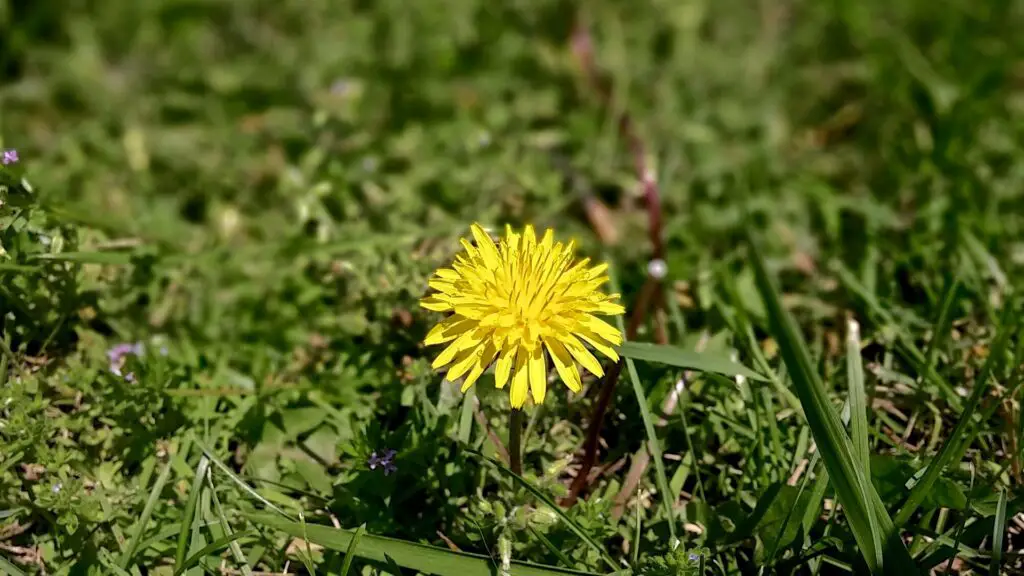
Do Not Use Glyphosate On Your Lawn Grass
One of the most important aspects of keeping a lawn healthy is ensuring that the grass is killed by the appropriate grass treatment.
There are a lot of plant products on the market, but not all of them work well on lawns.
The worst weed killer for lawns is glyphosate, which is found in Roundup.
Roundup kills almost all plants and grass by inhibiting photosynthesis, so the plant can’t produce energy and it dies.
It is non-selective, so it will kill any plant it comes into contact with.
That’s why you should always read the label before using any herbicide.
Update: There are now cultivars of St Augustine grass that can be sprayed with glyphosate to control weeds like Scott’s ProVista St Augustine. These new selected varieties of grass are not harmed by Roundup or other products.
Conclusion
There are several selective herbicides that can be effective in controlling many common lawn weeds.
The best herbicide for your situation will depend on the weed species you are targeting, as well as on the characteristics of your lawn.
Unfortunately, lawns can be tedious to maintain.
The right tools are important to have if you want to keep your lawn clean and free from infestation.
The best way to get rid of unwanted grass is with a selective herbicide.
A selective herbicide labeled safe for lawns will kill only the weeds and not the grass.
More Lawn Care Tips:
What Are Those Brown Spots In My Yard
How To Get Rid Of Torpedo Grass
How To Measure Your Lawn For Sod
How Many Square Feet In A Pallet Of Sod?

